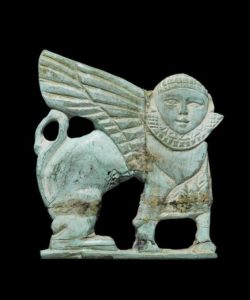The Carthaginians Say No To Cato:
Cato and the rest of the senators poured into the Senate House in the Forum early the next day to send their decree to the Carthaginians. They were anxious to send their final demands to the errant city state of Carthage in North Africa across the Mediterranean Sea. For the sake of the few senators who had not made it to his latifundia the day before for the grand banquet and for the sake of the plebeians outside gathered around the Senate House, Cato again rose and made his speech.
He explained to the assembled mobs why Rome had to take the step of asking Carthage to vacate its city state location on the Mediterranean, which was after all to each Roman “Our Sea” and not to be shared with enemies. He explained how the Roman soldiers would burn down what remained and tear apart the very walls and ramparts, leaving only the cemeteries for the pagan gods. And they would establish a permanent patrol tower on the coast to make sure that the Carthaginians did not sneak back and start rebuilding their troublesome city state once more.
The plebs in the Forum shouted out their agreement with Cato’s words. After all, they had been the foot soldiers in the ranks during the last war with Carthage and the Carthaginians. They also had cherished family memories.
“My grandfather lived to tell about Cannae!” one of the plebs called. “The last thing he did before he went to bed every night was to curse the Carthaginians. He used to have a new imprecation every time we listened to him. I have a whole list of them.” The pleb was standing right outside the main Senate House door. He shouted straight into it.
Cato left his seat from which he had been speaking to the assembled body of senators. He brushed past the others down the aisle out to the door. He took the unprecedented step of inviting the plebeian from the streets of Rome to enter the august chamber. He led him to his place from which he had been speaking.
“Speak to the Senate,” Cato urged him. “Tell them what you are telling your confederates about the damned Carthaginians.”
The commoner was astounded. He gaped around in amazement at the most important men in Rome. He looked as if he never imagined to find himself in such a place and had to find his own sense of gravity. He finally managed to find his tongue.
“My grandfather survived Cannae only to serve under Scipio Africanus. He came home to Rome to celebrate the triumph over the Carthaginians. It was the greatest day of his life. He would not want us Romans to lose what we achieved that day. That is all I wanted to say. And if it were up to me I would do as this senator asks you to do. He knows what he is talking about.”
The senators cheered the plebeian in their midst. Gaius thought it was probably just as well. If it came to war, these men would be the recruits and the foot soldiers who would serve in the army. They had to feel that it was their city state as well.
The plebs outside broke into such a cheer that it continued for the rest of the afternoon without any intermission at all. In the meantime the senators voted to send messengers to Carthage and the Carthaginians with the demands of the Roman Senate. No one really expected them to accept the terms, but there was always the chance. They had already sent hostages, though the hostages had escaped, and not every city state would have done that. They had even sent weapons, though they had probably been taken from somebody else. And they had finished paying their reparations which showed their wealth. Other states would have been bogged down forever with a burden like that. Perhaps they would seem to accept this demand too so that secretly they could go about building up weapons and ships to defy the Romans. No one would be surprised if the Carthaginians were not honest.
It did not take more than a couple weeks before the news arrived back from the African side of the Mediterranean. The messengers had been murdered. All the Roman merchants who had the bad luck to be trading with Carthage that day had been massacred. Captured Romans had been dragged out on top of the walls of the city. In full view of the messenger ship in the harbor as well as all the other ships from other lands Roman victims had been openly tortured, killed, and thrown over the walls into the sea. Carthage’s answer had been no they would not leave their city state behind and move ten miles inland. And to prove what they said, they were declaring war on Rome.
Cato once again assembled the senators in the Senate House. He invited inside what was left of the team of messengers that Rome had sent to Carthage several weeks ago. They told their tale in vivid words about what they had seen.
“Gentlemen,” Cato finally spoke out. “I think we have lived to see it. The Third Punic War has begun.”
